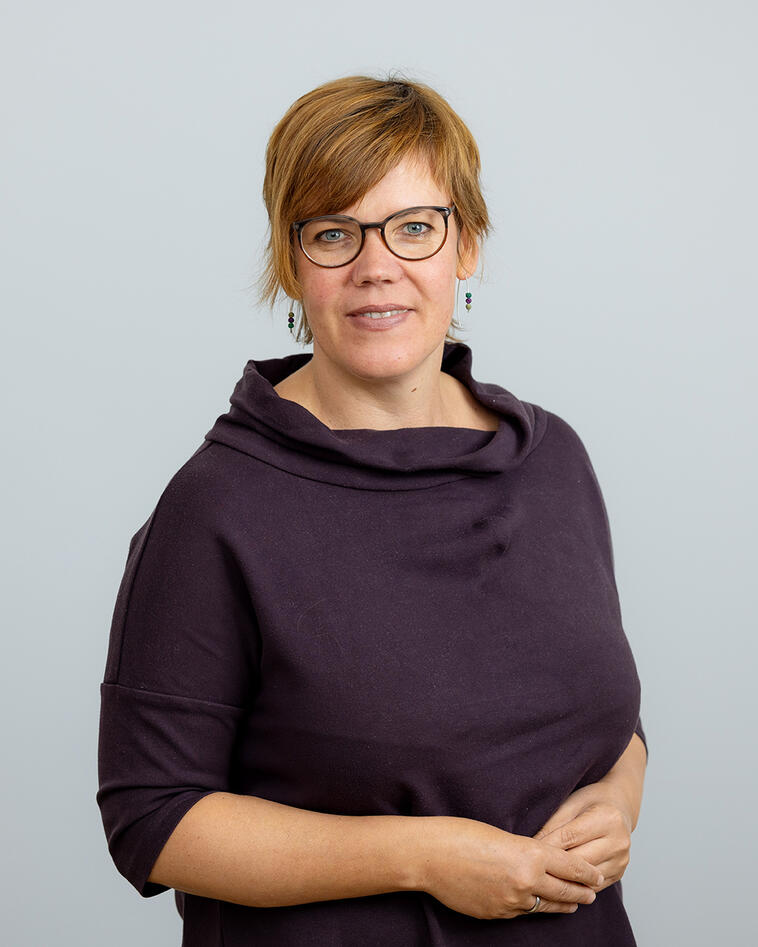Regine Paul
She appears as a highly committed, well-aware, and development-oriented teacher, with a clear eye for student learning. Read more about Regine Paul and why she is one of our distinguished educators.
Main content
Why did you apply for the merit scheme?
– I was hesitant about applying at first, as I had most of my teaching experience from outside UiB. But a colleague who got the award earlier encouraged me. Her argument was that “even if you don’t get it, this is a chance to reflect upon your teaching philosophy and practice, and you will learn from that…!” I think she was spot-on about that!
What did you learn along the way when you put together your educational portfolio/during the application process?
First, I was overwhelmed by all I had to put together. I did not have a ready portfolio, as some might have through their UPed courses, so it took two weeks to write the application, but it was worth it. I wrote the application around Christmas – free from other obligations and I really enjoyed reflecting on my 12 years of teaching practice across England, Germany, the Netherlands and Norway. It was really an inspiring and liberating process to take the time for this.
Especially since in our usual day-to-day, we rarely have the time to document what worked well or not so well with each course we teach, what and how we innovated, and what we learned for the future… I also realized that I have taught quite a lot and built-up a varied portfolio over time. This was a big confidence boost.
What has it meant to you to get the title of excellent educator, and why should others apply?
– I was certainly proud to get this award, but also humbled. For me, this creates a sense of obligation to live up to this recognition in the future, to continue doing excellent teaching and community work on teaching innovation.
I was also happy for a more political reason. I am really pleased that the faculty and the University recognize the relevance of excellent teaching in that manner. There are a lot of incentives in the international HE system for academics to shine in their research, which can marginalize teaching as something that we just do on the side; so we can write the next paper or grant application. I find this problematic for two reasons. Firstly, because I think that it is usually not a lot of fun to do anything half-heartedly, and then we are not at our best when we are teaching. Secondly, because we as professors can have a lot of impact on society by educating young people well, by helping them to think critically and learn independently, by removing barriers to education and so on.
If we publish one less paper each year, no-one is terribly affected, I don’t think; even if that is what a lot of the incentive structures tell us. But if we don’t put effort into educating the next generation of scholars, employees, and citizens, we lose a great opportunity to make a difference.
Why should others apply?
– For the people who really care about teaching, this is a stance. Even if you don't get the recognition, you acknowledge that you care. We keep reviewing each other’s grant proposals and journal articles, but we assume that everyone teaches well once they passed their UPed courses. I think our teaching should be peer-reviewed more like our research – and schemes like this one can help to raise the profile of teaching as part of our scholarly careers and quality assurance.
And if you do get the recognition, it could certainly help you with promotions, and it can create useful links to others interested in advancing excellence and innovation in teaching. The bigger the crowd, the more likely the relevance of excellent teaching will gain wider traction.
Do you have any tips for other university teachers?
– Talk through your portfolio with others, also those who got the award before you. Be prepared to admit “failure” and discuss things not going as planned; see them as an opportunity to reflect upon your teaching path. Think quite concretely about how you have shared teaching experiences with colleagues and how students themselves have been involved in designing and developing your courses.
What makes an excellent educator?
– My most remembered teachers in school and university were very authentic and straightforward. Not everyone is the born classroom entertainer – there are different teaching types, just as there are different learning types. I think it helps to reflect on one’s strengths and weaknesses, preferences and motivations, and to develop a teaching philosophy around this. I share the key pillars of what drives me as a teacher with students as that helps manage mutual expectations. In my experience, it also helps to admit one’s own lack of knowledge and failures. Try to leave your comfort zone and be open to criticism. For example, I tend to use anonymous polls where the students could grade the lecture and lecture’s performance at the end of each lecture and also give qualitative feedback. I hear from students that they appreciate this openness. We expect students to learn from our feedback and examination grades, so I think we should lead by example and learn from their evaluation of our performance, too.
